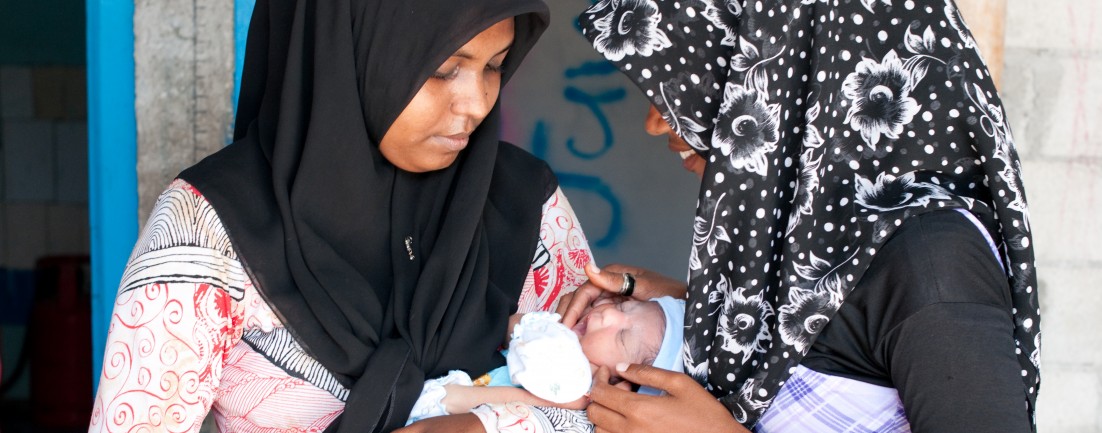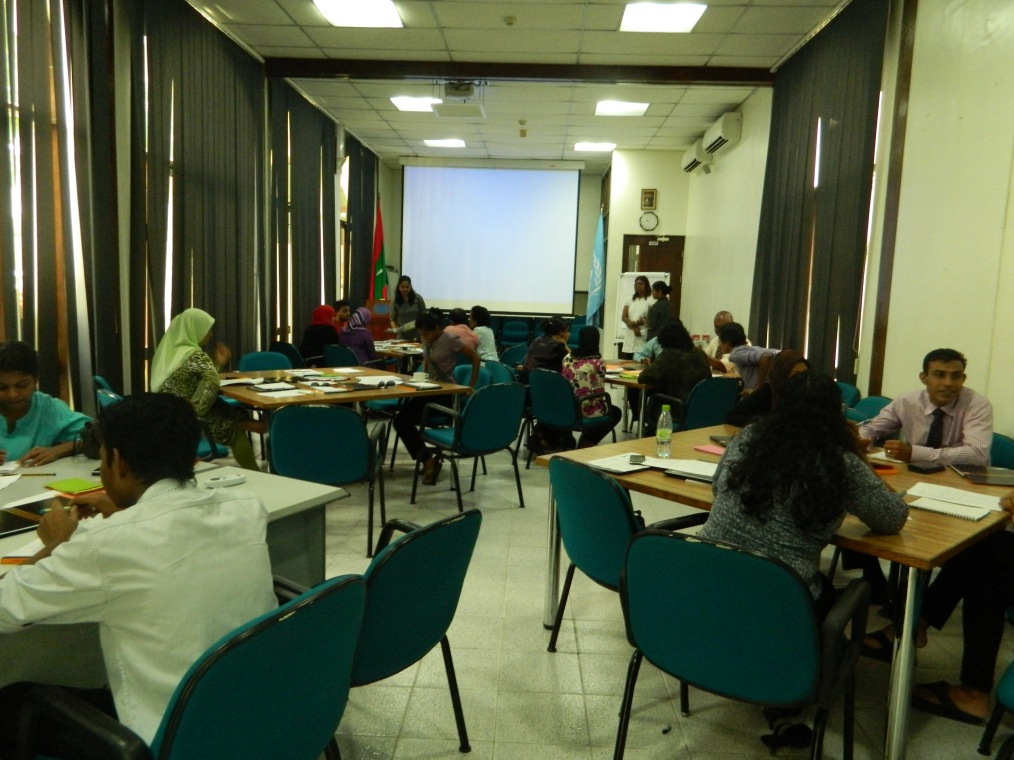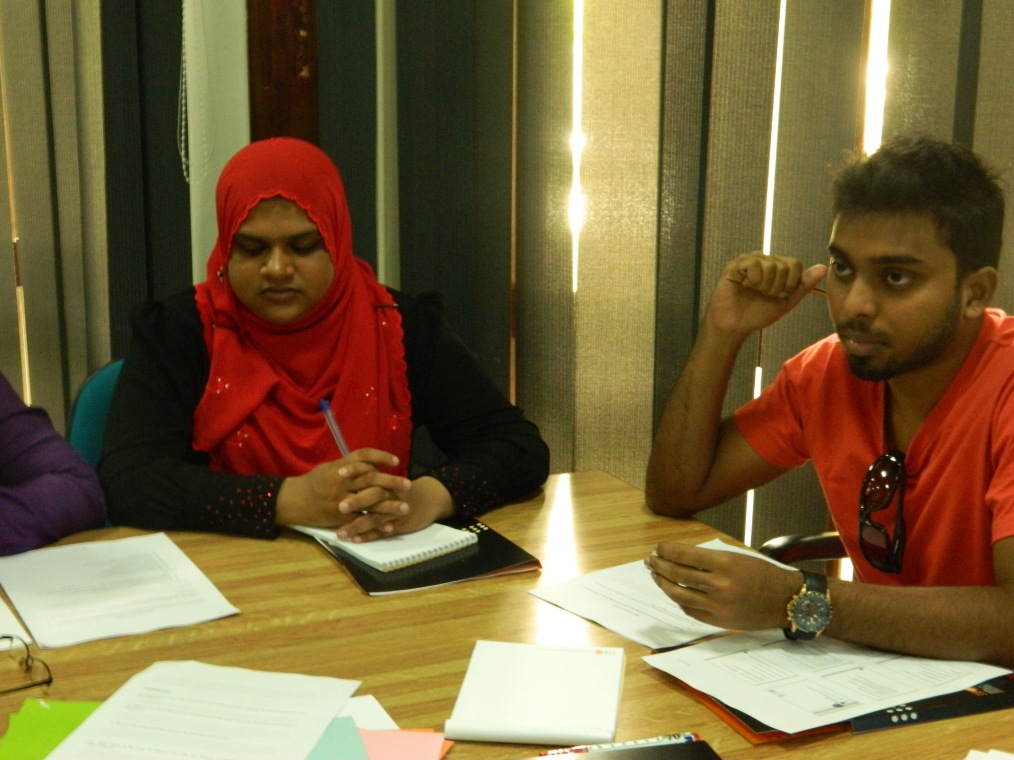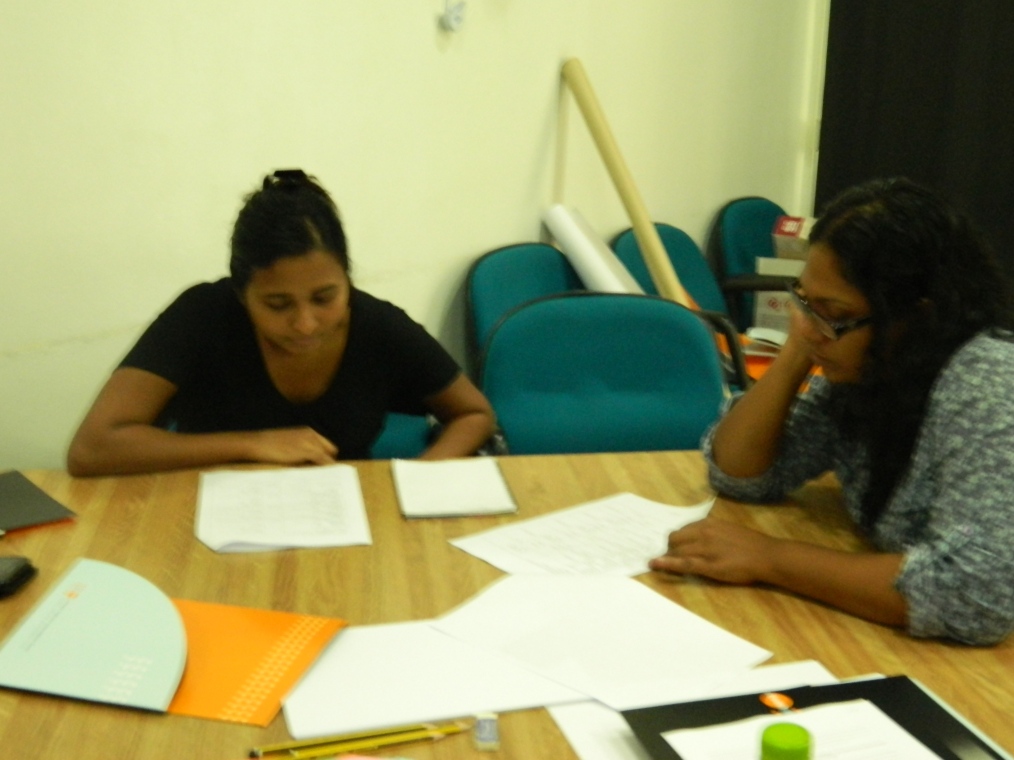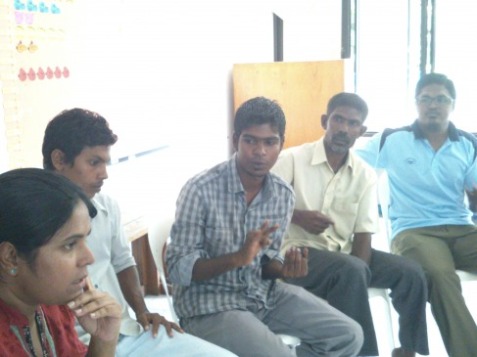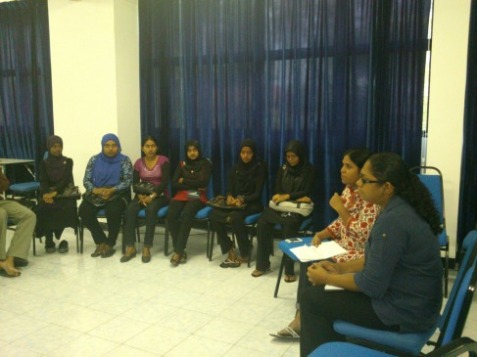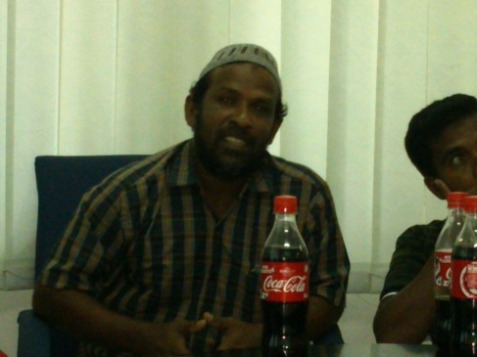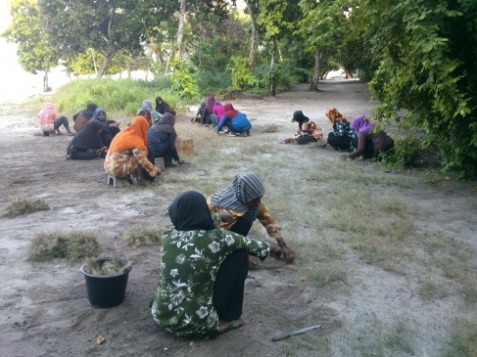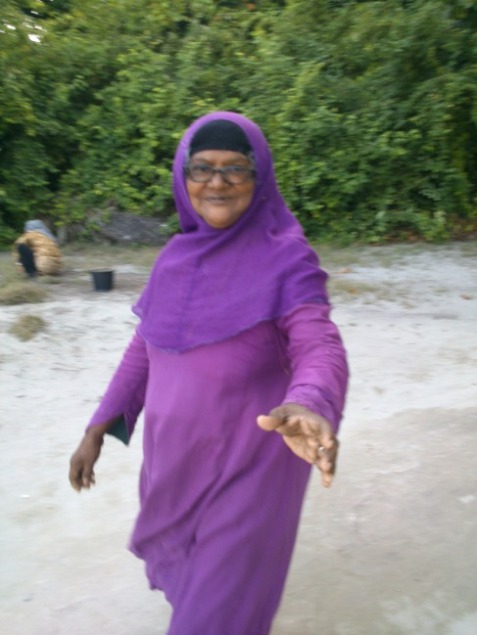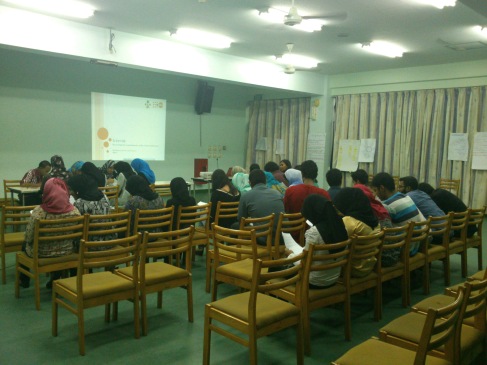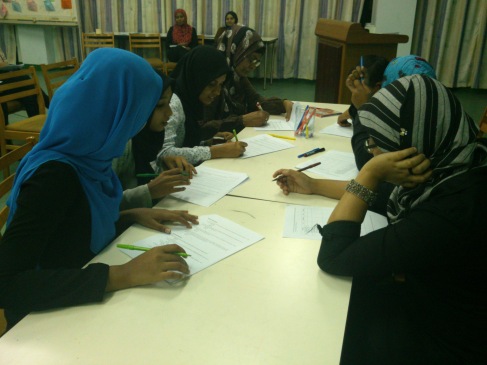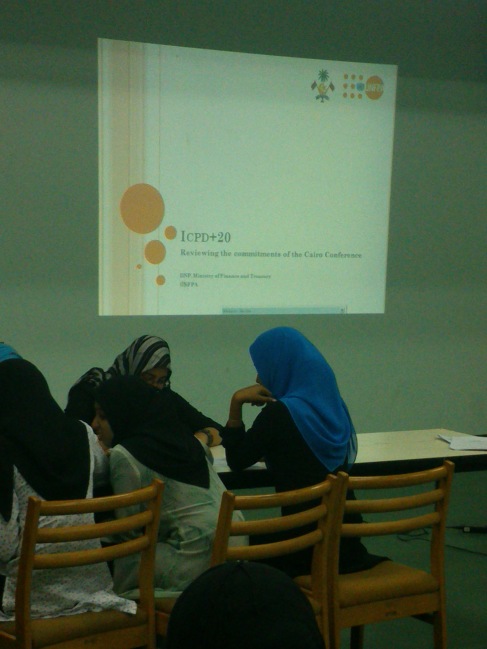As part of the Maldives Country Review for the ICPD 2014 Survey, a workshop was held at the United Nations Building in Male’, Maldives, on 26th September 2012. Twenty participants representing various NGOs in the Maldives and representatives from the stakeholder ministries and institutions took part in this workshop.
The workshop was initiated by a brief presentation about ICPD and the Maldives country review by Mr. Rune Brandrup, International Programme Coordinator of UNFPA Maldives. This was followed by a presentation on the ICPD Maldives country review process by Ms. Aishath Azfa, consultant to the UNFPA. The participants were then divided into five groups according to thematic areas given below.
- Group one: Urbanization, Internal Migration, International Migration and Development
- Group two: Family, well-being of individuals and societies, ageing and needs of elderly, needs of people with disabilities, needs of indigenous people
- Group Three: Gender Equality, equity and empowering women, Population, Sustained Economic growth and Sustainable Development.
- Group Four: Needs of Adolescents and Youth and Education.
- Group Five: Reproductive Rights and Reproductive Health and Health, Morbidity and Mortality
Each group was given a simplified version of the Global Survey Questionnaire and was asked to prepare a brief presentation on their respective theme. A facilitator, a rapporteurs and a presenter was identified from each group.
During the group presentations, every group outlined the current situation in their respective thematic areas and highlighted the key issues in the area in the Maldives. The groups also highlighted the main challenges faced in these areas and recommended possible solutions to these issues.
Group one listed lack of commitment from political parties and religious groups, difficulties faced by Councils to provide services to the people, lack of initiative from the community and reactive mindset of people as the main challenges. The group suggested strengthening the economic situation of the country, increase awareness among social issues arising from migration and urbanization, increasing commitment of political and religious leaders to address migration and urbanization positively and strengthen population consolidation programmes as possible solutions for these issues.
Group two identified lack of proper frameworks supporting the needs and rights of the elderly population and people with disabilities, lack of support systems, lack of awareness within the community about the needs and rights of people with disabilities, increased violence and discrimination against the elderly population and people with disabilities, absence of infrastructure and social services and a lack of sustained programmes to address their needs as the main challenges. The Group members said that although certain social protection allowances were paid by the Government, there is a huge gap in monitoring whether these allowances are being utilized to its original purpose. As possible solutions, the Group suggested conducting a more comprehensive assessment on the needs of the elderly and people with disabilities and empowering the Civil Society further to conduct more activities.
Group three stated that the main challenges facing in the area of gender equality include low representation of women in decision making level, negative information being spread by certain religious parties diminishing the role of women in society and lack of empowerment as the key challenges. In the area of sustainable development the group identified the current political situation of the country, political parties making decisions based on short term political and economic gains rather than considering the long term environmental impact of their actions, waste management crisis of the country, inability to harvest water for the hot season and lack of awareness among the community about sustainable development as the main challenges. They proposed increasing awareness and empowerment programmes, training women to build their capacity, establish proper waste management facilities, address stereotyping and empowering Civil Society as possible solutions.
The challenges identified by Group four included the impact of poverty on youth, lack of role models, deteriorating values in the society, limited employment opportunities and vocational/skills training opportunities. The group also felt that youth groups are not involved in development activities that directly impact their lives. The group also raised concerns about the lack of implementation of activities targeted at youth development, despite the fact that the required policies and budget are in place. As recommendations, the group suggested creating more job opportunities for youth, incorporating SRH information into policies, teacher training and the curriculum through foreign aid and help from experts, strengthening values through the education system and strengthening civic education and skills training programmes.
Group five, discussing on the topic of reproductive health, reproductive rights, morbidity and mortality, identified sustained family planning services, improvements in maternal and infant mortality rates, the continued push from UN agencies and the active involvement of the civil society as major achievements. However, the group stated that there was a lack of commitment from political leaders on these issues and a lack of general awareness among the public. The group also stated that religious and cultural perceptions about reproductive health has hindered provision of a comprehensive reproductive health services to people from all age groups. Furthermore, the group said that there was a decrease in the overall number of women who used contraceptive over the last few years. As recommendations for a way forward, the group suggested continued support from the civil society with increased involvement in RH issues; employ an inclusive approach to policy level and implementation, including SRH into the formal curriculum and taking necessary steps to desensitize RH issues to tackle the above problems.
During the discussion from other participants on the topic of reproductive health, the participants expressed their concerns about the increasing number of adolescents and youth involved in sexual behavior. The participants highlighted the raise in number of babies born out of wedlock, the number of babies who had been found murdered or thrown away and increase in unsafe abortions. Further, the participants stated that the community has to accept the fact that most adolescents and youth are actively involved in some form of sexual activity and there is an urgent need to create awareness and provide access to reproductive health services. The participants felt that the rights of youth and adolescents wishing to access reproductive health services are denied. The participants also felt that many people faced difficulties in consulting with specialized doctors and there have been cases where the confidentiality of the patient has been violated.
